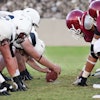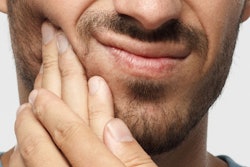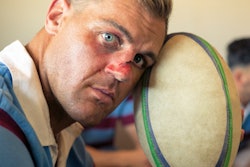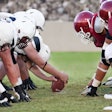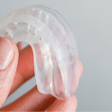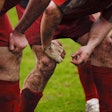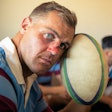
The bidirectional relationship between oral health and general health has long been recognized in the academic world, but it appears this link still remains widely unknown both inside and outside sports. Research shows that awareness of the importance of oral health is low in athletes and sports organizations, and apparently it is not considered a priority. But why is it so important?
Athletes are at greater risk of dental issues
Unfortunately, athletes and sports lovers are exposed to some factors that increase their risk of developing dental issues. For example, swimmers are at higher risk of having dental erosion due to the acidic environment in chlorinated pools. Also, most athletes adopt extreme diets and consume sugary drinks that can damage dental tissues and increase the risk of caries, gum diseases, and erosion.
Elite athletes' lifestyles can also favor the development of conditions such as xerostomia due to high levels of dehydration, stress, sweating, and mouth breathing. Lastly, oral injuries and dental trauma can often happen without the appropriate protection in contact sports such as boxing, martial arts, rugby, and more.
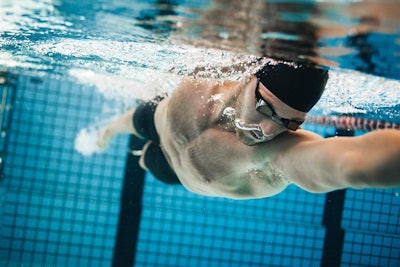 Swimmers are at higher risk for dental erosion. All images courtesy of Sunstar.
Swimmers are at higher risk for dental erosion. All images courtesy of Sunstar.Poor oral health affects sports performance
According to the Sports Dentistry guidelines developed by the FDI World Dental Federation, a healthy mouth can support a healthy body, and oral health is an important factor in helping athletes perform their best. Conversely, poor oral health affects overall well-being and can hurt athletic performance.
For example, the two major oral diseases, tooth decay and gum disease, are seen relatively often in athletes, with a prevalence of up to 55% and 76%, respectively. They can cause pain, which obviously directly affects sports performance, sometimes to the extent that an athlete needs to skip training or even pull out of a competitive match.
In the case of gum disease, the link with general health is quite clear, as the inflammation that characterizes the disease is associated with many systemic conditions, such as diabetes and heart disease. But besides this, there also seems to be a link between the level of inflammation and VO2 max (maximum oxygen uptake during exercise), a measure that represents so-called cardiorespiratory fitness. The problem with gum diseases is that they are often silent diseases, going undetected until it's too late and serious consequences occur, such as tooth loss.
 Martijn Verhulst, PhD.
Martijn Verhulst, PhD.Defective dental occlusion is another oral health problem that is linked to sports performance, where the teeth in the upper and lower jaws don't properly fit onto one another. This can negatively affect posture and gait, increasing the risk for injuries.
Finally, there are dental emergencies such as gum abscesses, an infected tooth, or wisdom tooth eruption that can happen unexpectedly and make you perform poorly -- or even withdraw from the competition.
Besides the obvious effects on sports performance, many of these oral conditions have a subtle but big impact on quality of life, especially the psychosocial aspect. Think of the limiting effect that stress, self-confidence, and socialization issues have on both training and competitive performance.
Oral diseases can also affect healthy lifestyle habits that athletes need to adhere to, such as following certain nutritional principles. For example, chewing hard, fiber-rich food can become difficult when you have gum disease or sensitivity due to dental erosion. Especially in the elite sports environment, where margins are extremely small, the smallest of disadvantages can make a big difference in winning or losing.
What can athletes do?
In any case, neglecting oral health will inevitably lead to oral problems, with all the consequences for performance. Fortunately, there is also good news for athletes. Many of these problems, such as gum disease, caries, or dental erosion, are preventable.
Encouraging elite and amateur athletes to maintain a proper oral hygiene regimen can help them optimize their oral health. All the standard advice applies: Brush twice per day with a soft toothbrush and fluoride toothpaste, but wait at least 30 minutes after eating and don't forget to clean between teeth.
It's equally important for athletes to consider oral health as part of their regular medical checkups, and they should undergo a checkup at least twice a year. Altogether, this can help athletes prevent dental issues from developing before it's too late. Further information about oral health and athletes is in the guidelines created by the FDI World Dental Federation.
Martijn Verhulst, PhD, is the medical liaison manager for Sunstar Scientific Affairs, where he is responsible for fostering relationships with key opinion leaders, hosting webinars, participating in scientific events, and creating scientific content. He has published several articles in international scientific journals examining how patients with diabetes benefit from extra oral health support. His research also resulted in an online screening tool for periodontitis.
The comments and observations expressed herein do not necessarily reflect the opinions of DrBicuspid.com, nor should they be construed as an endorsement or admonishment of any particular idea, vendor, or organization.

